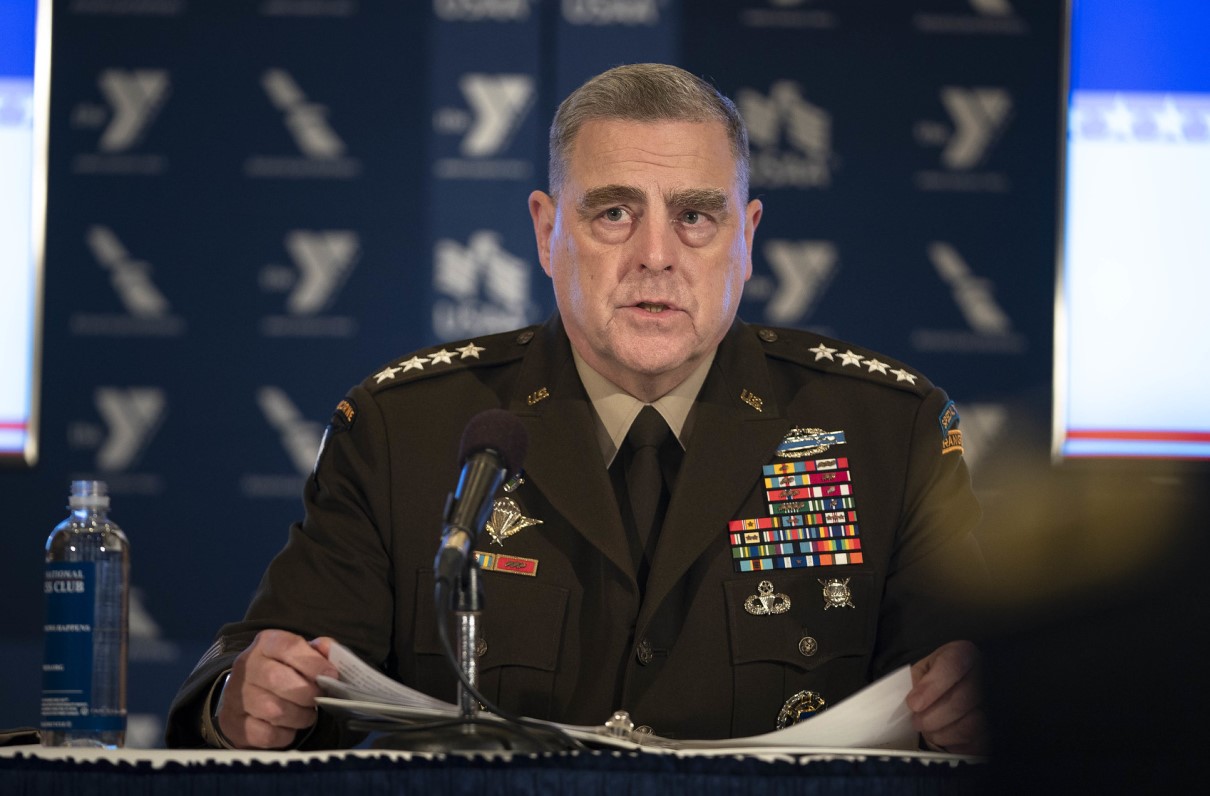Editor’s note: This article by Richard Sisk, with contributions from Gina Harkins, originally appeared on Military.com, a leading source of news for the military and veteran community.
Families joining troops on accompanied tours to overseas assignments could be a thing of the past in the proposed shift away from maintaining permanent bases in other nations, Joint Chiefs Chairman Gen. Mark Milley said Dec. 3.
Milley said he was concerned about military families living in overseas locations where they could be at risk.
The U.S. needs permanent bases overseas to provide a forward presence in the new era of great power competition with Russia and China, Milley said in a virtual U.S. Naval Institute Defense forum. But, he added, those bases would be best served by rotational forces.
Having military personnel accompanied by their families at overseas bases "needs a significant relook for a lot of reasons -- one is cost, but another is force protection, especially for our non-combatants, family members, spouses, children, etc.," Milley said.
He noted that the U.S. military frequently deploys troops for long tours in locations other than in combat zones. "People like it and they're overseas, and it's exciting in a foreign country and speaking a [foreign] language, and all this other kind of stuff," he said. "But there are elements of risk."
He cited Bahrain, headquarters of the Navy's 5th Fleet, as an example.
"Well, there's a variety of tension" in the region, "and has been for some time with Iran," he said. "If we were ever to have a conflict with Iran, those non-combatants would be at high risk."
[RELATED: MOAA's Spouse and Family Resources]
Milley also pointed out the risks to military families in South Korea, where 28,500 U.S. troops are stationed.
"I have a problem with that," given the unpredictability of the North Korean regime, Milley said.
Regarding families accompanying their service members on future South Korea tours, "I'm not so sure that's a smart move going into the future," he said.
Milley acknowledged that there was not "a lot of enthusiasm" for what he was proposing, and decisions on rotational forces and limiting accompanied tours were not his or the Pentagon's to make.
[RELATED: How You Can Make the Most Out of the New Military OneSource App]
His proposals amounted to a "grand strategic question that has to be answered, not by those in uniform. It has to be asked and answered by the nation's policy makers, the American people, Congress and so on and so forth," Milley said.
However, the Defense Department has already taken preliminary steps to limit accompanied tours in U.S. Central Command's area of responsibility in the Mideast.
In June, DoD issued a memo stating that tours in the CENTCOM area would be extended to 12 months and troops on the extended tours would not be allowed to bring their families with them.
The new rules would take effect over two years and would eventually result in 12-month tours in Bahrain, Kuwait, Oman, Qatar, Saudi Arabia, United Arab Emirates, Yemen and Iraq, the memo said.
Currently, military families are allowed to accompany their service members only in Bahrain and Qatar.
"Families in the two countries are authorized to serve out the remainder of their tours," the memo said, but once the 12-month tour system is fully implemented, all tours in the region would be unaccompanied.
MOAA Knows Why You Serve
We understand the needs and concerns of military families – and we’re here to help you meet life’s challenges along the way. Join MOAA now and get the support you need.
